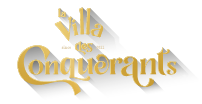The ideation phase is defined by the creative process aimed at generating ideas, often in a collaborative and iterative way.
The ideation workshop is built in a favorable environment, both in the place and in the mobilized teams. In all its definitions, ideation is systematically associated to creativity.
Ideation is a process that has been theorized by several scientists, including Henri Poincaré, Jacob Getzels and Herman Helmotz, who established five stages in the creation of an idea:
- identification of the problem to be solved, often formulated in the form of a question
- saturation or research of existing information and data, around a problem
- the incubation or assimilation of research, and the awakening of the imagination
- the illumination corresponding to the spontaneous phase of ideas, appearing without prior research.
- The final phase of analysis and review of ideas, in order to support or eliminate them, is called verification.
The ideation workshop is a central process of problem solving. It is often ideally used with the help of facilitators, external to the issues. These can intervene to promote the use of the three fundamental elements of ideation:
- The initial problem, resulting from an analysis
- creative or divergent thinking
- convergent or critical thinking
